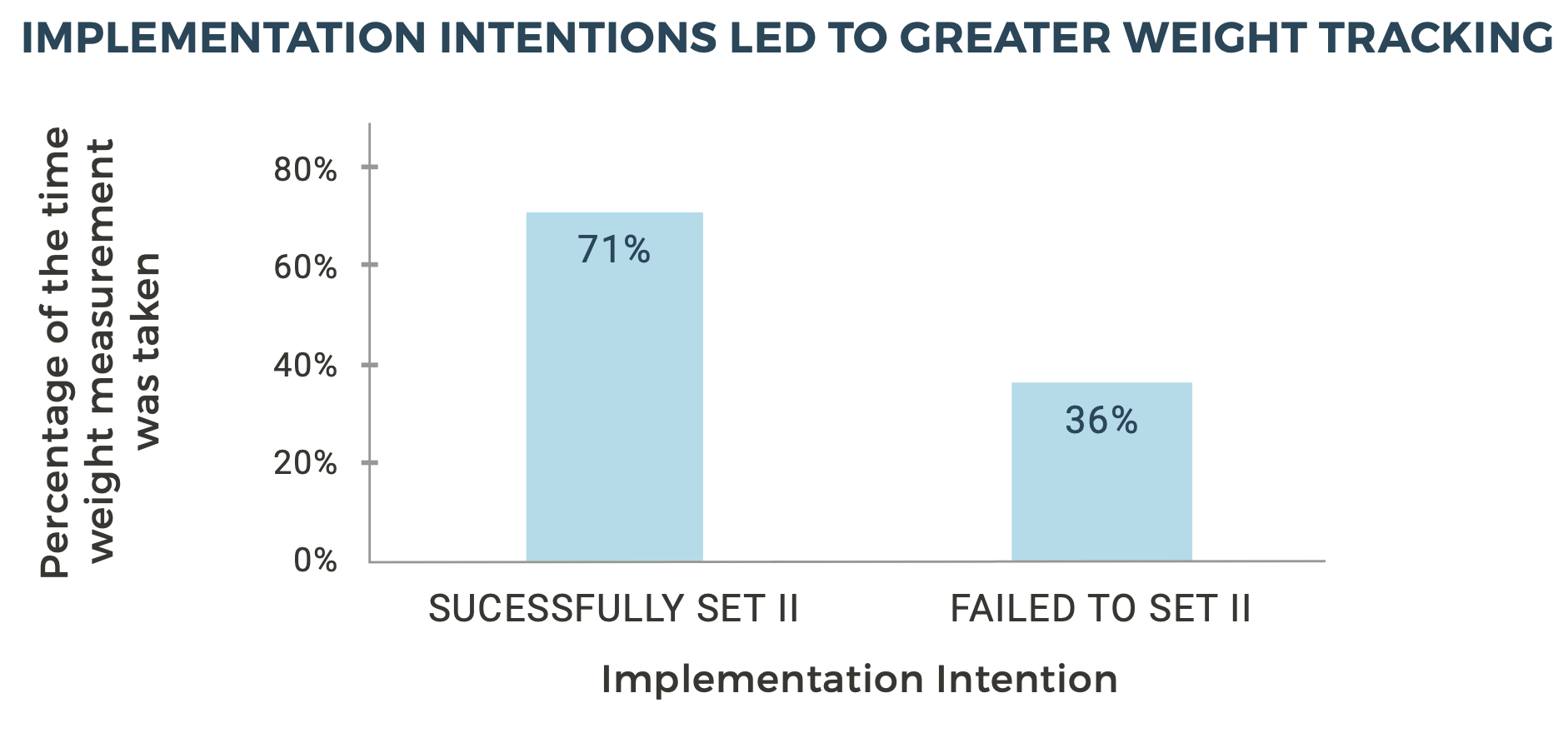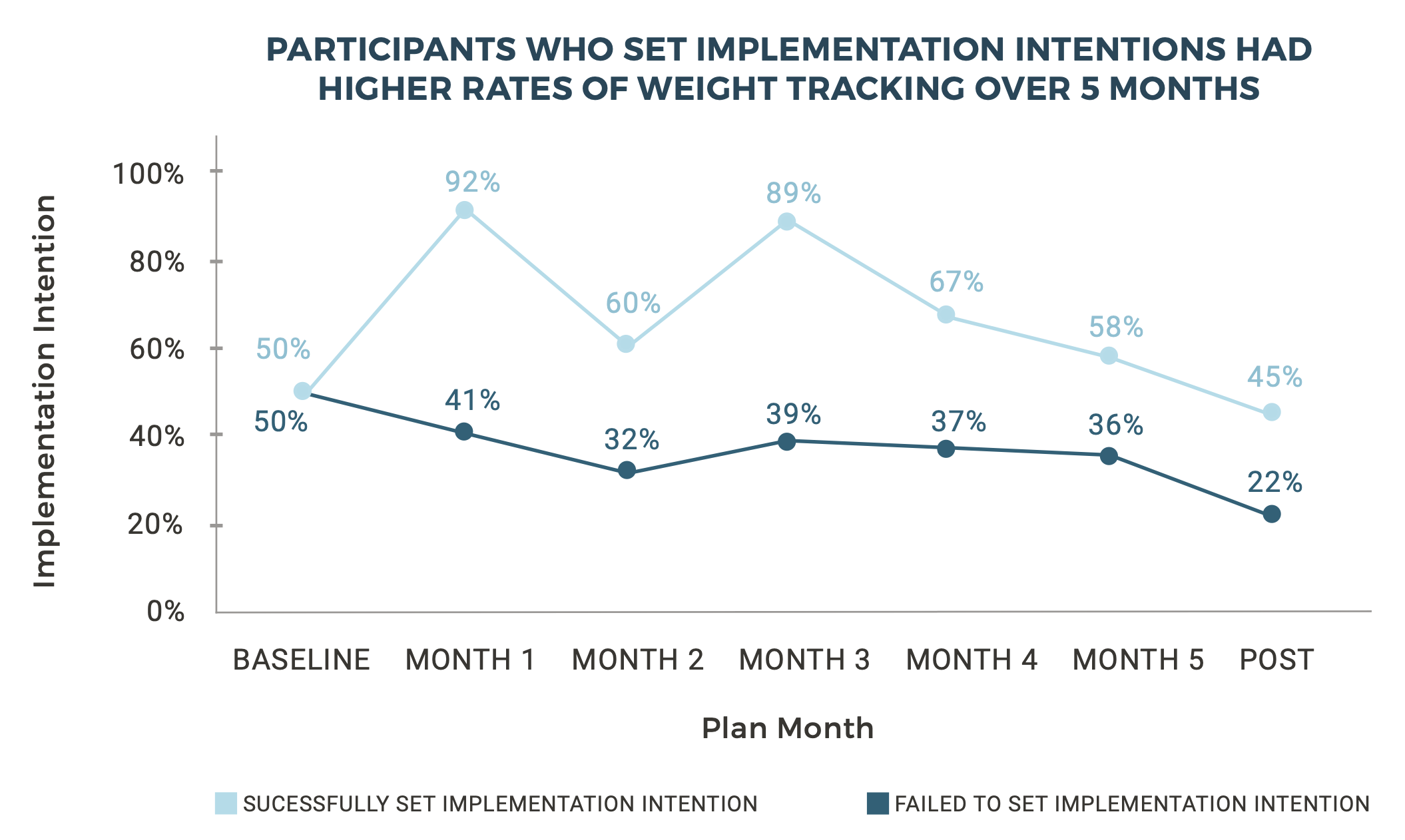Pattern Health has developed and tested a variety of behavioral strategies to increase user engagement and adherence to these programs in collaboration with Dan Ariely’s Center for Advanced Hindsight at Duke University, including the following case study.
Implementation intentions for weight tracking among congestive heart failure patients
Weight tracking is an important component of disease management for heart failure patients, as sudden weight gain (in the form of fluid retention) can be a symptom of a bigger problem that can lead to rehospitalization. Weight tracking can generate important life and cost savings by preventing heart failure patients from having an emergency.
We investigated whether implementation intentions could be a useful tool to help patients step on the scale on demand. Although behavioral interventions utilizing implementation intentions often target one-time behaviors, our intervention used the strategy repeatedly over the course of six months to test whether their impact would hold over an extended duration.
In a six-month study with 26 congestive heart failure patients, we gave participants a smart scale and sent two notifications each week to set an implementation intention through the Pattern Health mobile app. These notifications served as an on-demand prompt to take a weight measurement that evening. In the app, participants chose an evening activity (e.g. “after I brush my teeth”) that would serve as a cue for participants to weigh themselves. All participants were also asked to take a weight measurement every morning.


We found that when patients set an implementation intention to specify when they would step on the scale later that day, they weighed themselves an average of 71% of the time across the six-month intervention. When they failed to set their implementation intention, that number dropped to 36%

In addition, consistent weight tracking in the baseline period (before the patients were prompted to set implementation intentions) was not associated with more consistent weight tracking in the intervention period. This suggests that the results cannot simply be explained by individual differences, such as more adherent people setting implementation intentions.

Weight fluctuations can be a dangerous indicator for patient with heart failure. Increases in weight need to be caught early to provide the appropriate care (such as adjusting medication dosage), reducing the likelihood of hospitalization. The implementation intention intervention used in this study was simple to implement, low cost, and highly effective at increasing weight tracking. Given the practical benefits and documented efficacy, implementation intentions should be considered wherever possible as a low-cost, high-impact intervention.